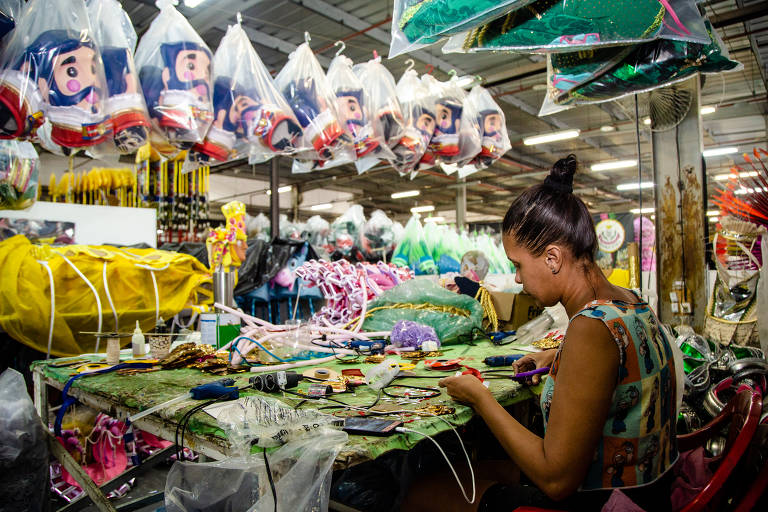Inside Mangueira's warehouse, a large float made off with giant books stands out. One of the books is a reference to Isabel, Princess Imperial of Brazil, who signed the law emancipating all slaves in Brazil. For the act, she went down in history as "The Redemptress."
But carnival director Leandro Vieira says that Mangueira, one of the most traditional samba schools in Rio de Janeiro, will tell Brazil's "untold history" at this year's parade. That means that Princess Isabel will have her kindness put in question, along with other Brazilian historical figures.
Mangueira's parade will highlight the importance of mostly unknown heroes, especially from African or Indigenous descent. "It's a relevant topic in the current political climate," said Vieira.
Is the parade an act of resistance against president Bolsonaro? "I don't think it's the best way to describe it because it makes it seem like it's an act of propaganda," he replied. "Mangueira's parades have always been against conservatism."
Mônica Benício, widow of assassinated councilwoman Marielle Franco, will perform in a section dedicated to men and women born and raised in favelas that overcame prejudice and rose to notoriety. Franco was killed almost a year ago, and the crime remains unsolved.
LGBT people will also be represented: for the first time, Mangueira will have a transgender woman as its parade muse.
Translated by NATASHA MADOV
Read the article in the original language
